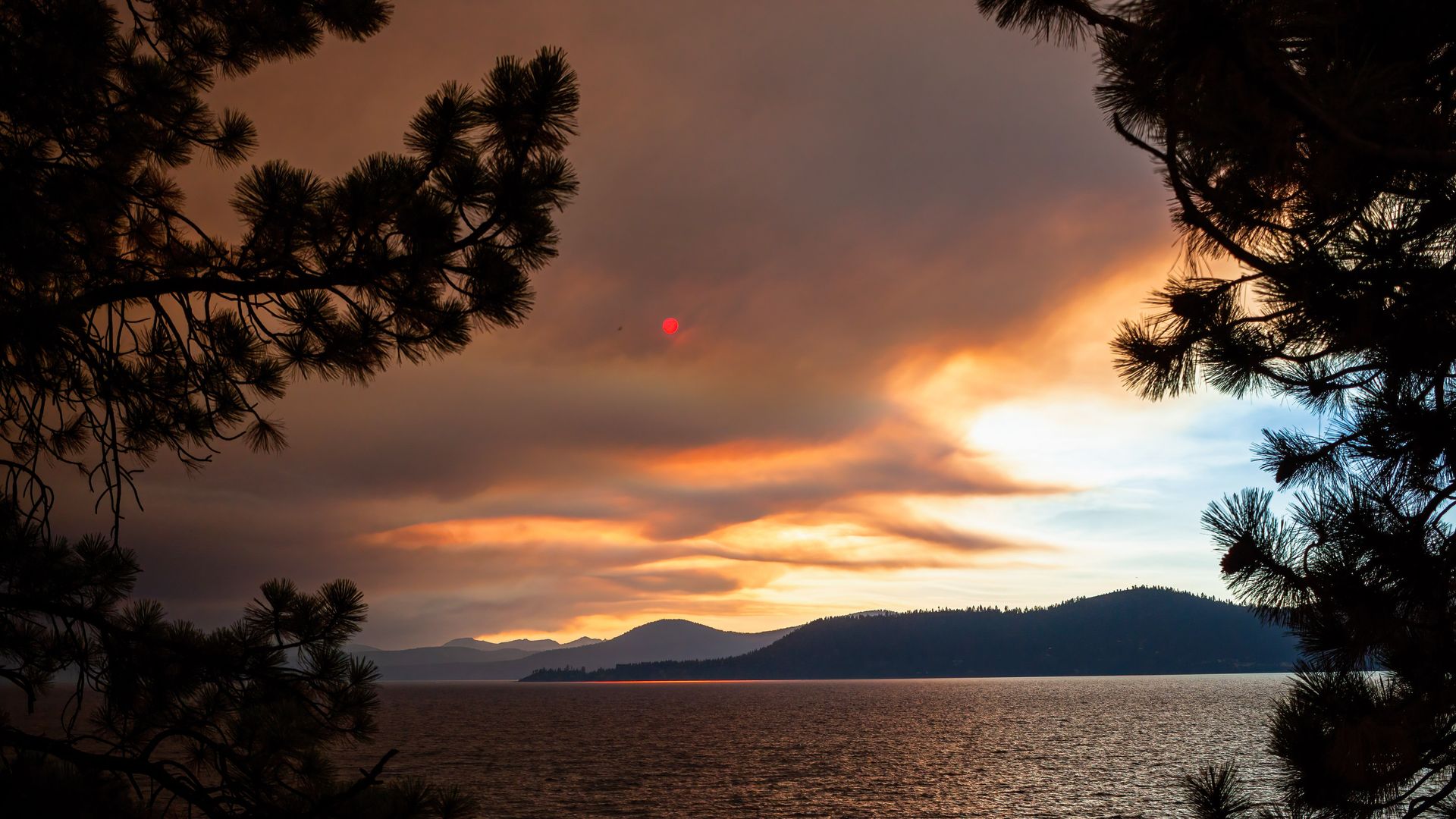| |
| |
| |
| Presented By GE |
| |
| Axios Generate |
| By Ben Geman and Andrew Freedman · Sep 22, 2022 |
| 🥞 Good morning! Today's newsletter has a Smart Brevity count of 1,328 words, 5 minutes. 📬 Did a friend send you this newsletter? Welcome, please sign up. 🎶 Saturday will mark the 1991 release date of A Tribe Called Quest's album "The Low End Theory," which provides today's intro tune... |
| |
| |
| 1 big thing: Manchin grasps for old-school deal on new energy permits |
 |
|
| Photo Illustration: Lindsey Bailey/Axios. Photo: Kevin Dietsch/Getty Images |
| |
| Congress is diving back into a high-stakes energy fight, but unlike passing the new climate law, enacting a big bill this time will require uncertain cooperation across the aisle, Ben writes. Driving the news: Sen. Joe Manchin (D-W.Va.) has unveiled his plan to speed permitting of projects ranging from power transmission to natural gas pipelines to clean energy. Yes, but: Passage of the bill released Wednesday evening will rely on cobbling together a bipartisan coalition — a relative rarity — because the bill faces opposition from some progressive Democrats. Catch up fast: Majority Leader Chuck Schumer, in a deal to secure Manchin's vote for the climate bill last month, agreed to back the West Virginia senator's permitting plan. What's next: Schumer and Manchin hope to attach the proposal to must-pass legislation to keep the government funded after Sept. 30. Fallback options could include hitching it to the annual defense policy bill. Why it matters: The bill is an ink-blot test — even among Democratic allies. - Developers of transmission, solar and wind, and battery storage cheered the plan. They call it a way to help fully realize the clean energy boom the new climate law envisions.
- But several climate groups bashed the bill, calling it a boon for fossil fuels and dangerous to communities adjacent to oil-and-gas projects.
What we don't know: Whether anywhere near enough Republicans will cross the aisle to offset Democratic defections on both sides of Capitol Hill. - Manchin thinks he may need up to 20 Senate GOP lawmakers, per Bloomberg.
- Faster permitting is a longstanding GOP goal. But Republicans are rallying around a more aggressive plan from Sen. Shelley Moore Capito of West Virginia.
- And Manchin irked Republicans with his support for the climate spending and tax deal.
Zoom in: Manchin's bill sets targets for completing environmental reviews of major projects; deadlines for issuing permits when they're complete; and a 150-day deadline for court challenges to final project approvals. - There's a mandate for rolling federal designation of 25 projects of "strategic national importance" for priority review. The list must include fossil fuel projects, critical minerals, clean energy, hydrogen, storage and more.
- It also bolsters federal powers to site big transmission lines and mandates approval of the Mountain Valley Pipeline, a gas project that runs through Manchin's state.
|
    |
| |
| |
| 2. Study finds ominous rise in wildfire smoke |
 |
|
| Wildfire smoke clouds over the water at sunset in Lake Tahoe, Calif. Photo: Ty O'Neil/SOPA Images/LightRocket via Getty Images |
| |
| Larger, more intense wildfires in the western U.S. are reversing decades of clean air progress, a new study finds, Andrew writes. Why it matters: The study, published today in Environmental Science and Technology, finds that exposure to smoke-related, extremely unhealthy air quality is much more frequent compared to 15 years ago. The big picture: By combining satellite data with ground measurements, computer models and machine learning, scientists quantified daily wildfire smoke exposure for the Lower 48 states. - Of particular concern is fine particulate matter, and scientists closely tracked levels of PM2.5. These measure just 2.5 micrometers in diameter, far smaller than the width of human hair.
- They can enter the bloodstream and damage the heart and lungs.
By the numbers: The study documents a 27-fold increase during the past decade in the number of people living in locations that reached "unhealthy" smoke-related PM2.5 levels. - They also found a 1,000-fold increase in the population exposed to "very unhealthy" levels of PM2.5.
What they're saying: "We can actually do something about this," study coauthor Marshall Burke of Stanford University told Axios via email. - "We can manage forests in a way that reduces the likelihood of extreme fires in the future," he said, and increase filtration use to make indoor air safer.
- Absent such interventions, Burke warns, "The projections don't look good," given that a warming climate is drying forests and increasing wildfires.
|
    |
| |
| |
| 3. Big Beltway news: Treaties and tussles |
 |
|
| Illustration: Aïda Amer/Axios |
| |
| 👍 The Senate voted 69-27 yesterday to ratify a formal global treaty on phasing out very powerful greenhouse gases called hydrofluorocarbons (HFCs) used in air conditioning and refrigeration, Ben writes. - Why it matters: The vote formally endorses a 2016 amendment to the 1987 Montreal Protocol. The 35-year-old pact curbed substances that deplete the ozone layer, but one side effect was boosting the use of HFCs as substitutes.
- The big picture: While a 2020 U.S. law already requires steep domestic cuts, backers of yesterday's action say it helps U.S. manufacturers of HFC alternatives tap global markets and helps spur international cooperation. The Washington Post has more.
⚔️ Across the Capitol, a House hearing highlighted battle lines between the left and banking giants over climate policy. - Driving the news: CEOs appearing before the Financial Services Committee touted their clean energy investments while defending their refusal to end fossil fuel finance.
- Asked by progressive Rep. Rashida Tlaib (D-Mich.) if his bank has a policy against funding new oil-and-gas development, JPMorgan Chase head Jamie Dimon replied, "Absolutely not, and that would be the road to hell for America."
|
    |
| |
| |
| A message from GE |
| GE is advancing the future of energy |
| |
 |
| |
| GE Vernova helps generate one-third of the world's electricity and is innovating breakthrough technologies for tomorrow. Here's how: By focusing on hydrogen as a fuel, carbon capture and small modular nuclear reactors to help speed the energy transition and drive decarbonization. Read more. |
| |
| |
| 4. 👀 Tracking the World Bank controversy |
| The Biden administration is sidestepping calls to back the ouster of World Bank president David Malpass, even as officials push for the bank to act more aggressively on climate, Ben writes. Catch up fast: Some climate groups are calling for Malpass to leave after he refused this week to endorse the scientific consensus on human-caused warming, saying, "I'm not a scientist." The intrigue: Biden officials have largely demurred on wading into the controversy, though a senior administration official told reporters yesterday that Malpass' comment "obviously raises eyebrows." However, the administration says it's working to bolster multilateral development banks' climate efforts. What they're saying: A Treasury Department spokesperson tells Axios they want the bank to mobilize "significantly more climate finance for developing countries." "We have — and will continue — to make that expectation clear to World Bank leadership." |
    |
| |
| |
| 5. What the climate law means for electric car sales |
 Data: BloombergNEF; Chart: Thomas Oide/Axios Consumer subsidies the climate law will boost U.S. EV sales even as battery materials sourcing mandates challenge automakers, new analysis shows, Ben writes. Driving the news: The research firm BloombergNEF sees EVs — including full electrics and plug-in hybrids — accounting for over half of new sales by 2030. Why it matters: BloombergNEF produces detailed analyses of U.S. and global EV markets, so their stuff is worth watching. Zoom in: The incentives are projected to juice sales, but won't radically change the trajectory. - The law ties expanded consumer subsidies to automakers sourcing key materials domestically or from free-trade partners. BloombergNEF notes the law is "industrial policy first — and climate policy second."
- Automakers will "struggle" to meet critical minerals and battery rules, especially early on. But they're not as high a barrier as some critics suggest, BloombergNEF said.
|
    |
| |
| |
| Bonus: Charting the lithium surge |
 Source: Benchmark Mineral Intelligence; Chart: Madison Dong/Axios Visuals Lithium prices have more than quadrupled over the last year as the rush from automakers to produce electric vehicles gains momentum, Axios' Nathan Bomey reports. Why it matters: The spike in prices for raw lithium — a key material used in batteries — is fueling a rise in the price of EVs. Keep reading. |
    |
| |
| |
| 6. Destructive hurricane hit ahead in Nova Scotia |
 |
|
| Infrared satellite view of Hurricane Fiona on Sept. 22. (CIRA/RAMMB) |
| |
| Hurricane Fiona is aimed squarely at Nova Scotia, New Brunswick and Newfoundland as a high-impact landfall, Andrew writes. The big picture: The storm is poised to bring hurricane-force winds and heavy rains to Bermuda starting tonight. - As it spins north, it will grow in size and may maintain hurricane-force winds as it transitions into a post-tropical storm and races toward Canada.
- A record marine heat wave in the North Atlantic could help it stay intense through its final landfall.
Threat level: Fiona is likely to bring a damaging storm surge, pounding surf, damaging winds and flooding rains to eastern Canada. Widespread power outages are a threat, according to Environment Canada. Meanwhile, all eyes are focused on the Caribbean, where a tropical depression may intensify in the next few days. |
    |
| |
| |
| One useful thing to go: Axios' new book |
 |
|
| Axios Visuals |
| |
| Axios is out with its first book: "Smart Brevity: The Power of Saying More with Less." - It includes chapters on Smart Brevity for email ... meetings ... speeches ... presentations ... social media ... visuals ... and even how Smart Brevity can help you run a better company.
- Proceeds go to the Axios Fellowship Program, which allows us to hire more journalists from underrepresented backgrounds. You can buy it here (includes links to independent bookstores).
|
    |
| |
| |
| A message from GE |
| Modernizing the grid to counter severe weather |
| |
 |
| |
| GE engineers are developing a more resilient "one-size-fits-all" transformer. The reason: To help meet demand, prevent severe outages and restore power faster, aiding operators in bringing more renewables online. Read more about modernizing the grid. |
| |
| 🙏Thanks to Mickey Meece and David Nather for edits to today's newsletter. We'll see you back here tomorrow! |
 | | Why stop here? Let's go Pro. | | |












No comments:
Post a Comment